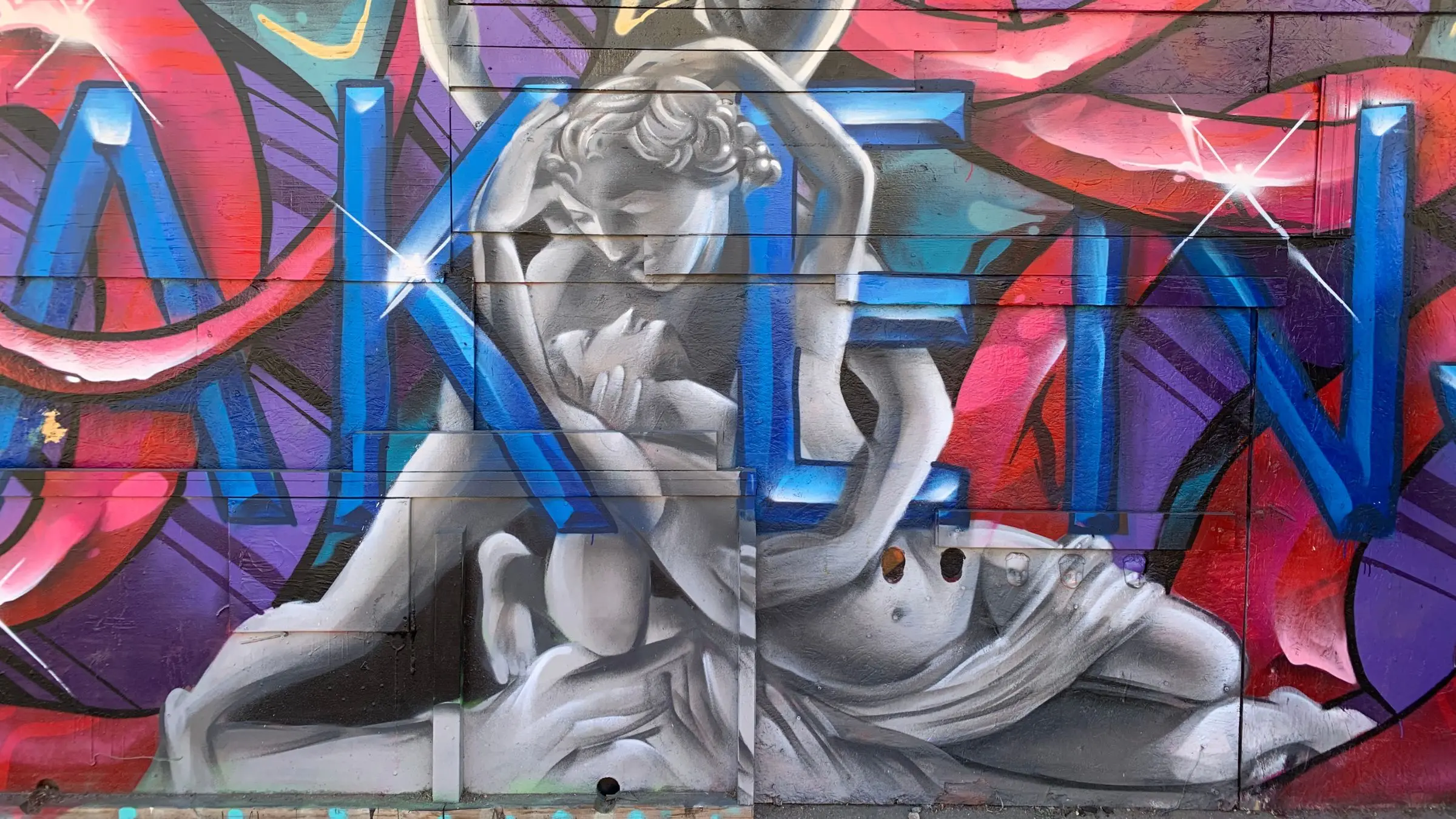Two Sundays ago, at the foot of the Lincoln Memorial, speakers at the WorldPride rally repeatedly invoked the memory of the Civil Rights leader who made history in the same spot 62 years ago.
It’s probably not the leader you’re thinking of.
They were referring to Bayard Rustin, who organized the March on Washington. Martin Luther King Jr., may have given the “I Have a Dream” speech, but Rustin was the person who made sure a quarter of a million people were there to hear it.1
Rustin was a guiding force in the Civil Rights Movement—as instrumental as people like King, Ralph Abernathy, John Lewis, and Rosa Parks—but his role is often overlooked or minimized because …
Pause for suspense, even though you know what’s coming.
… he was gay.
He Wasn’t a Bit Player, but He Was Cast in a Background Role
There’s little point in my retelling Rustin’s story, as there’s little I can offer that others haven’t already written and said.
Looking for Bayard Rustin 101? Click this section to embiggen a list of books, magazine articles, podcasts, and movies about Rustin.
Read
- “Bayard Rustin: Still Speaking Truth to Power” by Jimmie Briggs (firewalled article in Vanity Fair)
- King: A Life by Jonathan Eig
Listen
Eric Marcus’ Making Gay History podcast:
Watch
Rustin on Netflix
Note: I haven’t seen this yet. It’s in my queue, I swear.
I do want to comment on one thing about Rustin’s role out of the spotlight: I’ve heard many say that Rustin consciously chose to work behind the scenes because he didn’t want to distract from or derail the movement. 2
But was it really his decision?
It seems to me that if society, politics, foes, and possibly even well-meaning friends have taken away all but one option from you, it’s not choice. It’s like getting roast beef at the deli counter when everything else is sold out or expired. The decision isn’t what to buy, but whether to take the only thing available to you or to walk away empty-handed.
Rustin Reverberates
We’ll never know what Rustin could have done if he stood in front of an audience today.3 That makes it our job to bring his message and voice to the microphone. That’s what happened at WorldPride, where speakers called upon Rustin when they spoke about hope, engagement, compassion, and activism. Here are a few of the quotes I remember hearing:
We need, in every community, a group of angelic troublemakers.
Bayard Rustin
Let us be enraged about injustice, but let us not be destroyed by it.
Bayard Rustin
To accept injustice is to perpetuate it.
Bayard Rustin
Inventing Rustin
I need to make a quick aside about Rustin here—well, it’s not quick, not really an aside, and not really about Rustin. But it’s my blog, so we’re doing it anyway.
A fictional version of Rustin appears in My Government Means to Kill Me by Rasheed Newson. In the novel, the narrator chides Rustin for not having done more for LGBTQ people during the Civil Rights Movement.
Rustin took a long beat to consider his next words carefully. “It is difficult for the young to understand the strictures of the past. You want your elders to have fought every slight and grievous offense that came our way. But remember, at all times—even yours, even now—there are unjust laws and customs we abide. If you don’t believe me, tell people you’re gay and try to get a job as a schoolteacher. Take the man you love to city hall and try to marry him.
“We have to be calculating about when to bend and when to rebel. I considered myself lucky to have spent eight years working closely with Martin. In the back of my mind, I knew that my sexuality would eventually be used against me. I knew the ending would be abrupt, and I knew that my departure would cost me less if I conducted myself in an agreeable manner. You see, while I loved Martin, I loved the movement more, and if I’d have made a stink about a loss of status, I would have lost my chance to shape the march. I can live with my choices. I’d bet the same goes for Jimmy and all the homos in the movement you don’t know about. There was a great many more than two of us.
From My Government Means to Kill Me by Rasheed Newson
This passage in My Government Means to Kill Me stood out to me when I read it and still resonates today.
The fictional Rustin serves as a stand-in for all of the LGBTQ activists, leaders, and influencers who came before us. Their legacies are sometimes challenging. And, with the way things are going now, I expect we’ll look back one day and feel frustrated.
What I take away from Rustin-not-Rustin—and I don’t know if real Rustin or the author would agree—is that we should dedicate ourselves to bequeathing a better world to future generations and not to fret about how those generations might criticize what they’ve inherited.
I’d rather be an angelic troublemaker today than remembered as a perfect angel 50 years from now.
Footnotes
- I’ve taken a bit of creative license here. King was mentioned frequently, too. But that’s to be expected. Rustin rarely gets his due and is often omitted or de-emphasized in American history and probably wouldn’t have been mentioned, or at least not as much, at any other type of rally. In this post, I’ll explain why he was the most appropriate and inspirational historical figure to call upon at WorldPride. ↩︎
- This wasn’t just about abstract pragmatism. In 1960, King had to distance himself from Rustin publicly because of a blackmail threat. ↩︎
- Or, even better, what he’d do with social media. ↩︎

